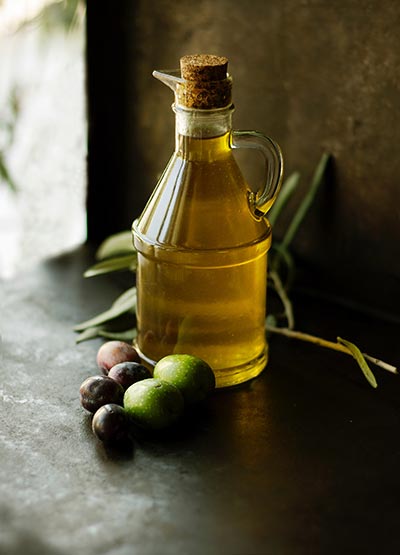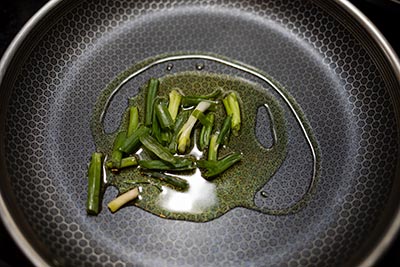
Does it matter what type of cooking oil we use? Is there really that much difference among cooking oils other than where they are sourced?
Nowadays, we have several options when it comes to what type of oil we cook with however, it doesn’t mean that all of them are healthy or that we should even be using them.
When considering health benefits, there are certainly differences among cooking oils and I believe that more and more, we are shifting our focus to make this a bigger priority when it comes to choosing cooking oils.
It is also important, when looking at the impact of cooking oils on our health, is whether or not certain oils are still considered healthy AFTER cooking with them.
So knowing that all cooking oils are not created equal and that some are much more healthy to cook with, which ones are the best choices for us to be using?

When looking at what are considered to be the healthiest cooking oils, the court of public opinion and that of science were not always in agreement.
Funny how public opinion was able to create almost a following of believers, in that using a particular oil/oils was of much greater health benefit than what the science actually proves.
That is not to imply that public opinion is not resting on valid and scientifically proven facts. However, public opinion has inflated some of the information and therefore the promotion of a POSSIBLE healthier option, while also ignoring some other very important facts.
Here are 5 cooking oils that top the list as far as “healthier choices,” that will hopefully help you make sense of all those options that fill up aisle 9 …
Extra-Virgin Olive Oil
This is probably one of the most popular and widely used cooking oils on the market, and rightly so. It’s a very versatile oil to cook with and has long been considered to be a healthy fat because of its impact on heart health and possible cancer preventative qualities. (1)
Something you may not know about EVOO, is that because it has a low smoke point (the temperature where it starts to degrade), this makes it NOT the best choice for cooking. So better to use extra-virgin olive oil for things like salad dressings, marinades, dips and as a condiment lightly drizzled on your favorite cold dishes.

Light Olive Oil
The only difference between extra- virgin olive oil and light olive oil is in the processing. Extra-virgin olive oil is usually cold-pressed or stone-pressed, is not heat treated and for these reasons tends to taste better.
Light olive oils are a lower grade as they are not from the first processing and are lighter in color. Because of its higher smoke point, light olive
oil makes an excellent choice for cooking, grilling, roasting and most high temperature cooking.
A word of caution though … this oil can be quite strong and may alter the taste of baked goods. Therefore it may be best to consider an alternative oil for these items.
Coconut Oil
Coconut oil comes as either refined or unrefined. In its refined state, it has
a very high smoke point making it a good option for high heat cooking. In its unrefined state, it retains more of its coconut flavor, making it a nice option for baking and can be used in place of butter on a 1:1 ratio.
Coconut oil is largely considered to be a “premiere” oil because of the many health benefits that we continue to find out about it. And there is plenty of scientific research that has shown that coconut oil can improve the composition of blood lipid levels because it is so high in lauric acid. (2)
What keeps researchers a bit on the cautious side is that coconut oil is very high in saturated fat, and even though there are considerable benefits to consuming coconut oil, researchers are wanting more confirmation on just how much better this oil is compared to other healthy cooking oil options.

Avocado Oil
As far as properties, avocado oil is similar to the family of olive oils making it an excellent option for your high heat cooking, as well as using it for cold cooking. Avocado oil contains heart-healthy oleic acid and is also a good source of lutein which is important for supporting good eye health.

Sesame Oil
Sesame oil is really something of an “under the radar” contender in the group of healthier cooking oils and is somewhat on par with olive oil, in that it contains both monounsaturated fats as well as antioxidants.
Sesame oil has a very intense flavor that can really add some depth to your recipes, although you want to be very selective as far as which recipes you are adding it to.
Sesame has a moderate smoke point making it ideal for moderate-heat cooking, such as stir-fry’s.

Final Thoughts
There continues to be a ton of research being done on the benefit of fats for heart health and with that, comes new information and findings every single day. So what was once believed to be an absolute “no-no” a few years ago, may now be considered moderately acceptable. It’s a little dizzying for sure.
What I will say is, when it comes to cooking oils there are still a few stand outs that overall offer more of what we want to include in our daily eating, and for this reason, should be on your list of healthier options.
Whichever ones make it to your pantry, keep these tips in mind …
Consider any specific dietary needs you and/ or your family has
Keep your oil FRESH! Oils oxidize over time and this alters their flavor.
Be oil savvy! Too much of a good thing is still TOO MUCH!
References:
https://www.healthline.com/nutrition/11-proven-benefits-of-olive-oil
https://en.wikipedia.org/wiki/Obesity_in_the_United_States








September 28, 2023
is smart balance a good oil to use
October 27, 2023
Hi Patricia,
Smart Balance Cooking oil is one of the many great options to use for cooking. It is a heart friendly type of cooking oil due to its high amount of healthy fats (monounsaturated and polyunsaturated fats) and generally has low levels of saturated fats. However it would still be best to always check and read the labels and its nutritional information. This will help you decide which oil to use for cooking.
Thank you!